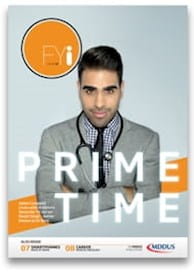AFTER five or six years at medical school and six busy foundation year rotations, many doctors consider taking a break. Time away from a busy schedule provides an opportunity to consider your future career, build your CV or do something a bit different before committing to specialist programmes.
But is pressing pause a good idea? Like anything, there are pros and cons but the key is to carefully consider what you want to achieve to make the best use of your time.
Some people worry that taking time out will make them less desirable when applying to specialty posts. In fact, while the conventional route may be more common, opting for charity work, taking part in research or gaining experience as a locum can show flexibility and help you offer something extra to prospective employers. The notion of an “F3” year is becoming increasingly popular as people look to undertake audits or complete membership exams whilst applying for competitive posts.
Locum work
If you are getting itchy feet being stuck in one deanery, or considering a future career abroad, you may want to test the waters by working or volunteering in the UK or further afield. Locum positions can be great for this. You can find Locum Appointment for Service (LAS) posts and there are also plenty of agencies who can provide work at short notice once you have full GMC registration. As well as deciding on a place to spend your training years, they can also help to firm up your choice of specialty. It’s worth saving up some money before diving into this as it may take a while to find a steady source of work.
Another possibility is Locum Appointment for Training (LAT) posts, which are attached to a deanery and count towards your training. They allow you to change location in your FY2 year if you are unhappy or need to move. Competition is tough and they may only be advertised for a short time. Check NHS jobs websites (www.jobs.nhs.uk, jobs.scot.nhs.uk) and publications like the BMJ.
Charity work
Many doctors are keen to pursue an interest in charity work, either abroad or in a specialised area such as prison or wilderness medicine. Although the learning opportunities provided by work in the so-called “third sector” can be scarcer and more costly, it can provide valuable experience in areas like business management. It can often give insight for future career planning, as well as greater job security than the private sector.
If you are thinking of going abroad, link up with a charity such as Médecins Sans Frontières or Mercy Ships, or ask your hospital registrars and consultants if they have any trips planned. Conferences are also a great way to meet people from around the globe. Check out www.medicstravel.co.uk for hospital information and www.avicenna.ku.dk to search international medical schools. Certain organisations can provide vaccines and health checks, as well as discussing your motivations for travelling further afield to plan for the longer term.
Before carrying out any charity work at home or abroad, be sure to contact your medical defence organisation to discuss your professional indemnity cover.
Flexible working
Flexible and part-time training are also options. Traditionally they are taken for family reasons such as caring for a child/relative. However, these posts are becoming more common and have been encouraged by the Department of Health and British Medical Association under the Improving Working Lives initiative. If you have a child under six or a disabled child under 18, you have a right to request part-time working. This will likely involve a discussion with your employer about continuous professional development and ensuring you remain up-to-date with current practice.
Academic work
If you are academically minded or enjoy passing on your knowledge, you may enjoy clinical teaching fellowships. These combine ward jobs with weekly slots teaching medical students, ranging from anatomy classes to ward-based teaching or tutorial sessions. It’s said that you’ve only understood a subject once you’ve explained it to someone else, so these jobs are great for anyone wanting to increase their knowledge and contribute to the education of future doctors.
Some doctors may wish to take a break from medicine altogether to spend time travelling or pursuing other interests. Activities can vary wildly from banking or medical writing to music and portfolio investments. If you are really lucky, your next interviewers will share the same interests.
Preparing for re-entry
A well-planned year out can be a great experience and make you a more versatile doctor. when you do return, be ready to show that you’ve retained your knowledge and skills. As with riding a bike, this should return once you are back on the wards, but it is prudent to dip into your textbooks and BNF or complete some online modules. Keep in touch with your colleagues, read journals, and have a look for weekend or day courses to hone your skills in areas such as suturing or plastering. Above all, enjoy it – you may never get the chance again!
Anne Parfitt-Rogers is an FY1 doctor and editor of FYi
This page was correct at the time of publication. Any guidance is intended as general guidance for members only. If you are a member and need specific advice relating to your own circumstances, please contact one of our advisers.
Read more from this issue of FYi

Save this article
Save this article to a list of favourite articles which members can access in their account.
Save to library

